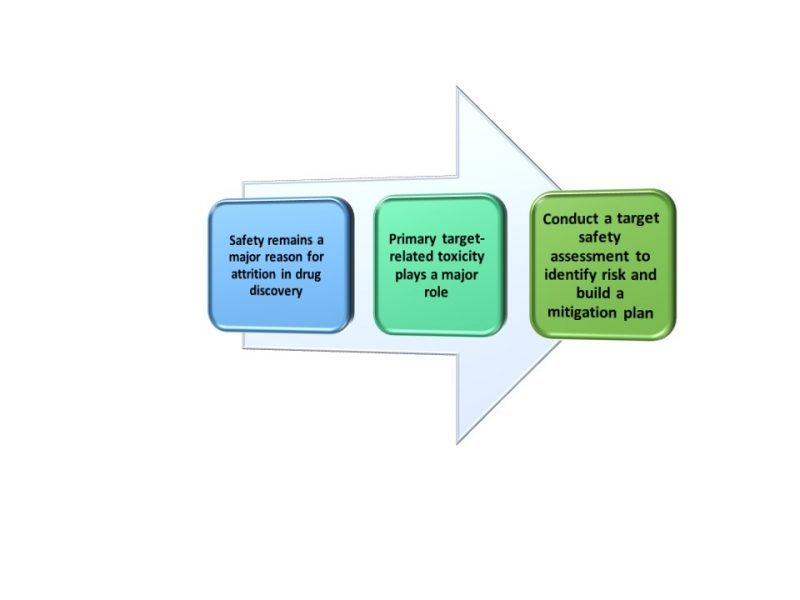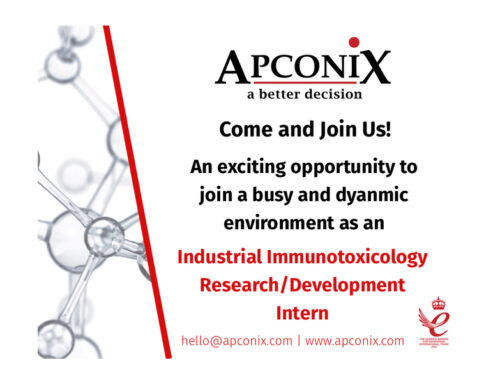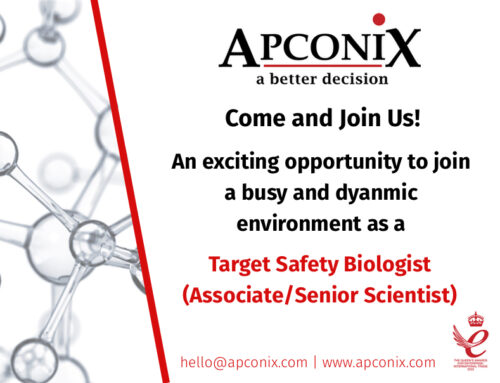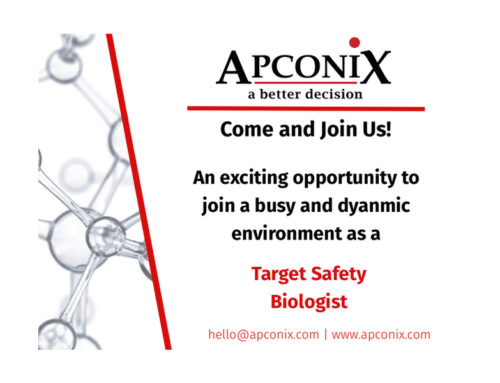Did you know that safety issues remain one of the main reasons why drug projects fail?
Multiple publications over recent years have continued to highlight non-clinical safety/toxicity as the most frequent reason for project failure in drug development. For example, in a study of 605 projects from GSK, AstraZeneca, Ely Lilly and Pfizer, nonclinical toxicology was the primary cause of failure for ~40% of projects (Waring et al., 2015).
What can be done to address this failure?
Since primary target-related toxicity plays a role in at least some of these failures, an in-depth assessment of potential adverse consequences of target modulation should be undertaken. These target safety assessments help make decisions on targets and for those targets that are progressed, help identify risks and build a risk mitigation plan that can grow and develop with the project.
What should a target safety assessment contain?
It’s key that a targeted review should contain all that’s needed to make an informed decision, appropriate to the stage of the project. Information on target biology, distribution/expression and any mouse or human mutation phenotypes are all important as the basis for summarising potential safety risks by organ system. As the project develops, a risk mitigation plan encompassing in silico, in vitro and in vivo approaches is also very helpful to guide project team discussions.
Who should conduct target safety assessments?
As highlighted by Brennan (2017), target safety assessments should be conducted by an experienced drug discovery toxicologist who can synthesise the available information into an actionable plan. The insight of someone who can interpret data in the correct context can make all the difference between a ‘data dump’ of unfathomable information and a succinct document that aids sensible decision-making.
The ApconiX difference
Here at ApconiX, we have a team of experienced drug discovery toxicologists who conduct bespoke target safety assessments designed to meet your needs. With our strong focus on risk mitigation and actionable recommendations, our clients tell us our approach is differentiating.
‘ApconiX target reviews are of outstanding quality and obviously created by people with a thorough understanding of what is needed to help guide decisions’.
James S. MacDonald PhD, Synergy Partners R&D Solutions
If you would like to take advantage of our expert target safety assessments, please get in touch at ruth.roberts@apconix.com
Waring et al. (2015) Nature Reviews Drug Discovery 14 475.
Brennan (2017) In ‘Drug Safety Evaluation: Methods and Protocols’. Methods in Mol. Biol. 1641 213.






